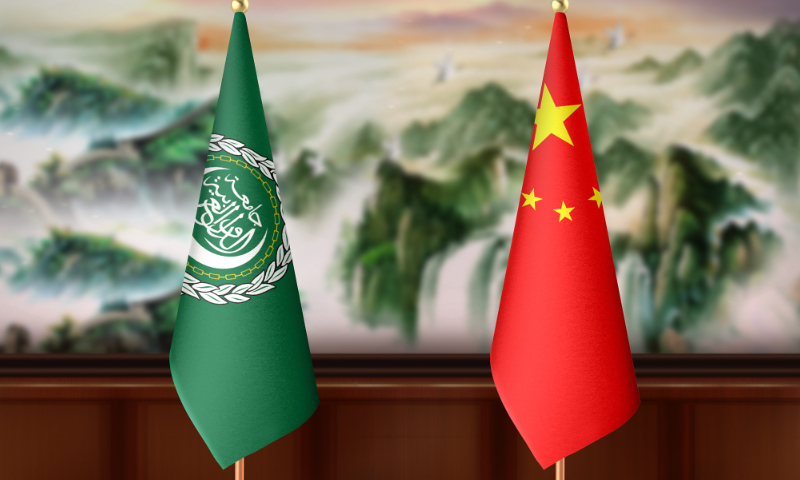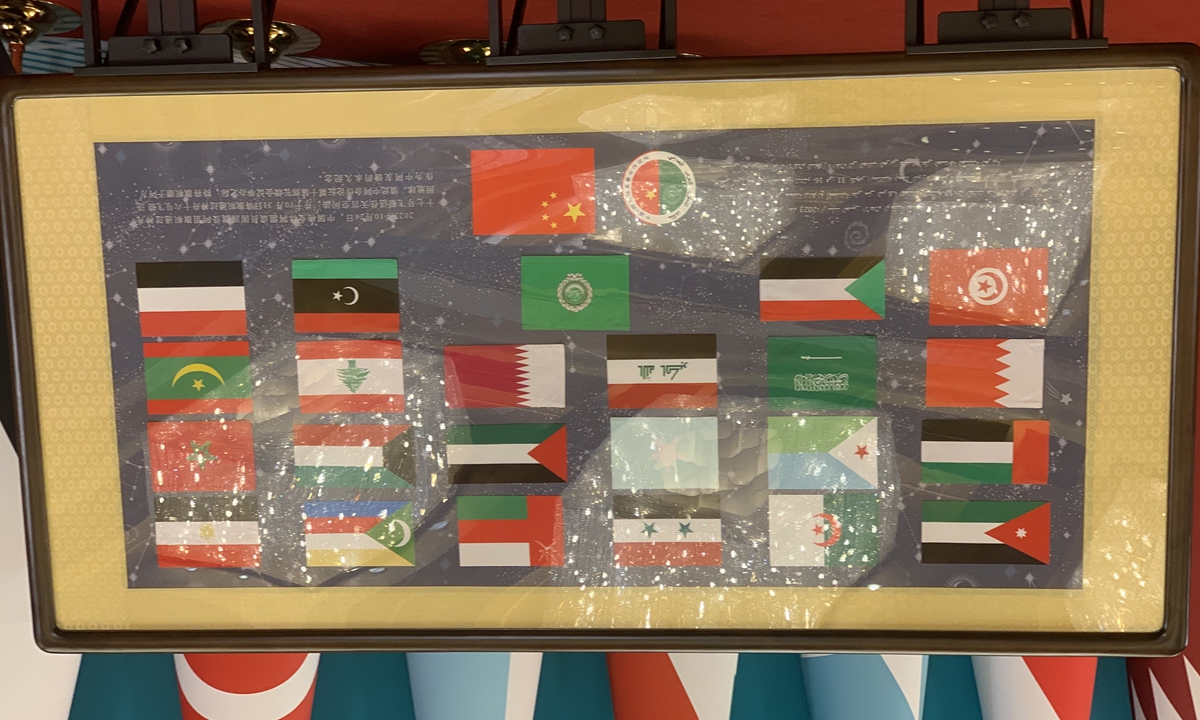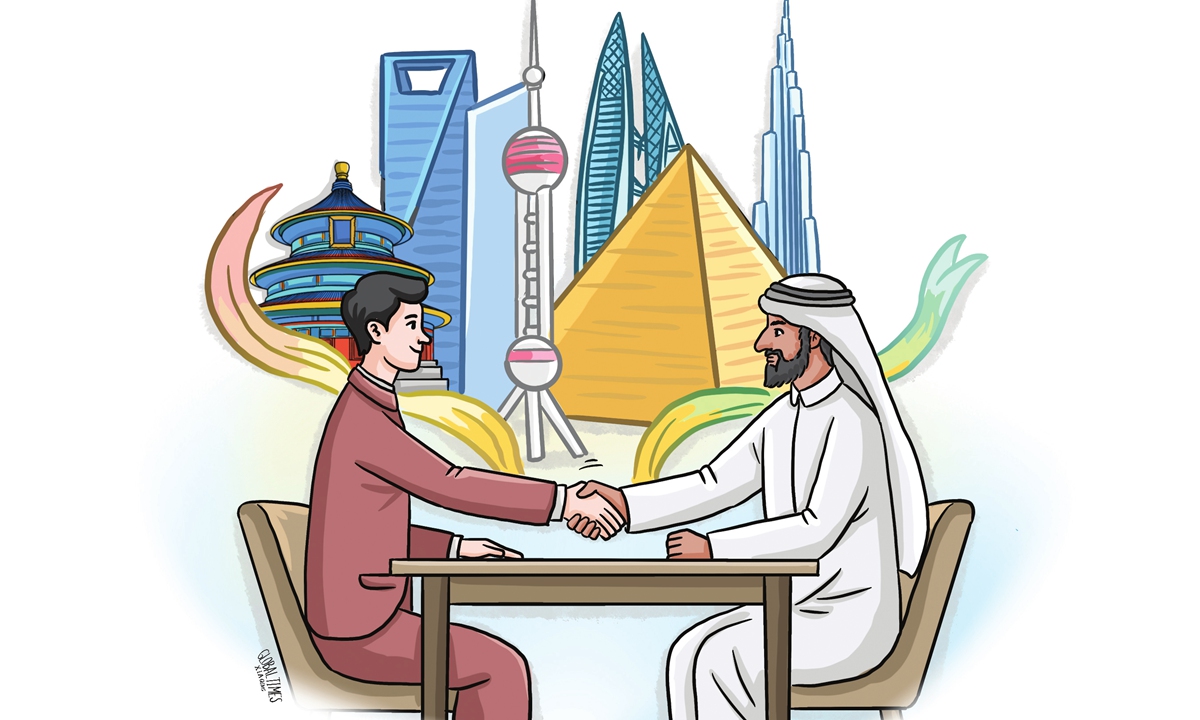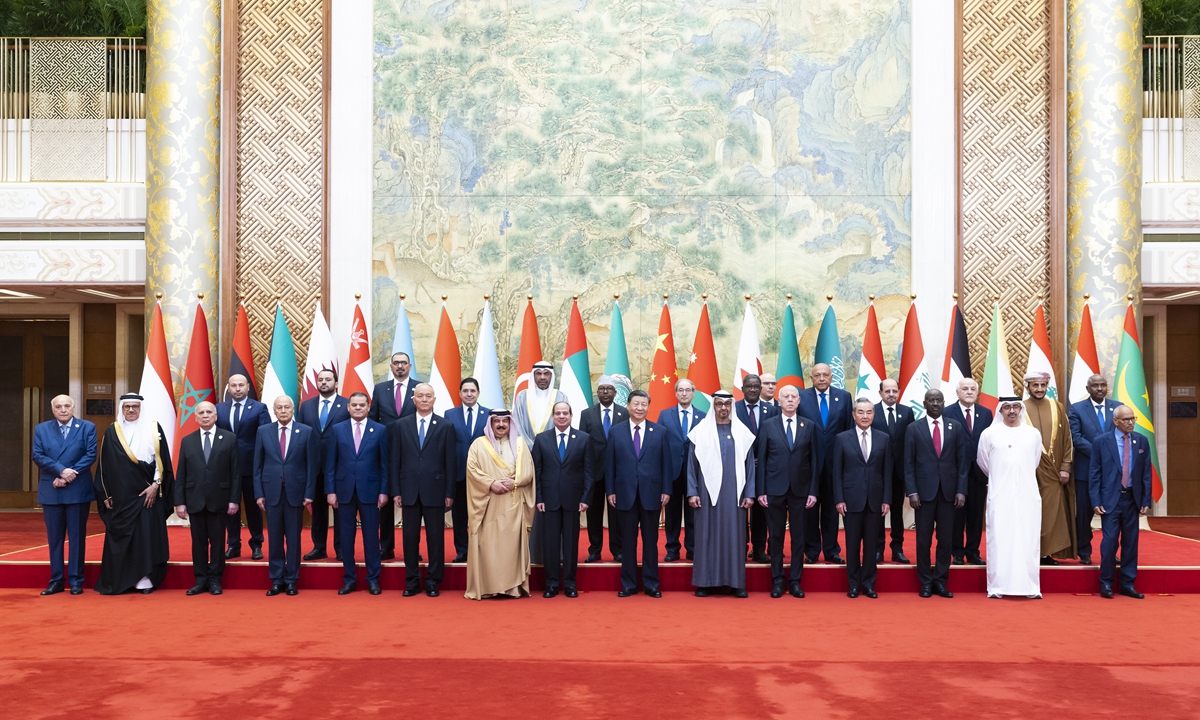China to enhance investment and finance cooperation, promote mutually beneficial trade ties with Arab states
Expanded cooperation frameworks align with mutual benefits, development goals: experts

Photo: VCG
China is ready to work with the Arab side to put in place "five cooperation frameworks" consisting of a more dynamic framework for innovation, an expanded framework for investment and finance cooperation, a more multifaceted framework for energy cooperation, a more balanced framework for mutually beneficial economic and trade ties, and a broader framework for people-to-people exchanges.
Chinese President Xi Jinping made the remarks as he delivered a keynote speech at the opening ceremony of the 10th ministerial conference of the China-Arab States Cooperation Forum (CASCF) on Thursday, the Xinhua News Agency reported.
The conference adopted a series of key documents including the CASCF execution plan for 2024-2026, which set out a plan to advance cooperation in various fields such as economy, trade, investment, finance and infrastructure.
Experts said that the collaboration between China and Arab states aligns with the mutual benefits and development goals of both sides and has vast potential for growth.
China stands ready to enhance cooperation with the Arab side on artificial intelligence (AI), financial institutions, energy, free trade agreements and tourism, among other areas.
In terms of technology cooperation, China will enhance cooperation on AI to make it empower the real economy, Xi said.
For the financial sector, China supports closer collaboration among financial institutions. It welcomes Arab banks to join the Cross-border Interbank Payment System and plans to deepen exchanges and cooperation on central bank digital currencies with the Arab side, Xi said.
In energy, China will further enhance strategic cooperation with the Arab side on oil and gas, and integrate supply security with market security. China is ready to work with the Arab side on new energy technology R&D and equipment production, Xi said in the speech.
China stands ready to accelerate the negotiations on bilateral and regional free trade agreements and advance the dialogue mechanism for e-commerce cooperation. It also welcomes active participation of the Arab side in the China International Import Expo, and is willing to expand import of non-energy products from the Arab side, especially agricultural products, the Chinese president said.
China also plans to work with the Arab side to achieve the goal of 10 million two-way visits of tourists in the next five years, Xi said in the speech.

China presents the Arab side with the flags of all Arab League member states and the Arab League flag, which were brought to the China Space Station via the Shenzhou-17 spacecraft on October 26, 2023, and returned to Earth with the Shenzhou-16 spacecraft on October 31, 2023. The presentation took place at the 10th Ministerial Conference of the China-Arab Cooperation Forum in Beijing on Thursday, symbolizing the enduring China-Arab friendship. Photo: Global Times
Niu Xinchun, executive director of the China-Arab Research Institute of Ningxia University, told the Global Times on Thursday that these moves represent the fastest-growing areas of economic cooperation between China and the Arab states, aligning with the mutual benefits and development goals of both sides. It also showed that cooperation between China and Arab countries is expanding beyond traditional energy trade to modern industries.
"As both China and the Arab states are currently undergoing industrial upgrades, there is a shift toward diversifying economic activities beyond traditional energy trade. Arab countries are now seeking to develop modern industries to reduce their reliance on oil. This economic transformation in the Arab world is in line with China's own development needs," Niu said.
The Middle East has always been a strategic market and there has been a trend of adopting Chinese products and technologies in the region, Hytera Communications, a Chinese producer of communications terminals with a leading global position, told the Global Times in a note on Thursday.
"The UAE, Qatar, and Saudi Arabia are leading the way in investing in new communications technologies and creating new applications," the company said.
Bilateral cooperation has deep complementary advantages and huge potential. By deepening cooperation, both sides can achieve resource sharing and jointly promote sustained and stable economic growth, Wang Peng, an associate research fellow at the Beijing Academy of Social Sciences, told the Global Times on Thursday.
"Arab countries have abundant capital and are seeking more investment opportunities. China's financial market is becoming increasingly mature, with a variety of financial products and investment channels. Cooperation between the two sides can promote capital flows and meet their respective financial needs," Wang said.
The CASCF has made remarkable achievements since its establishment and yielded important outcomes in multiple aspects.
China has been the top trading partner of Arab countries for many years, with trade increasing from $36.7 billion in 2004 to $398 billion in 2023, according to customs data.
China has signed Belt and Road Initiative cooperation documents with all of the 22 Arab countries and the Arab League, under which more than 200 major projects have been implemented, benefiting nearly 2 billion people on both sides.


